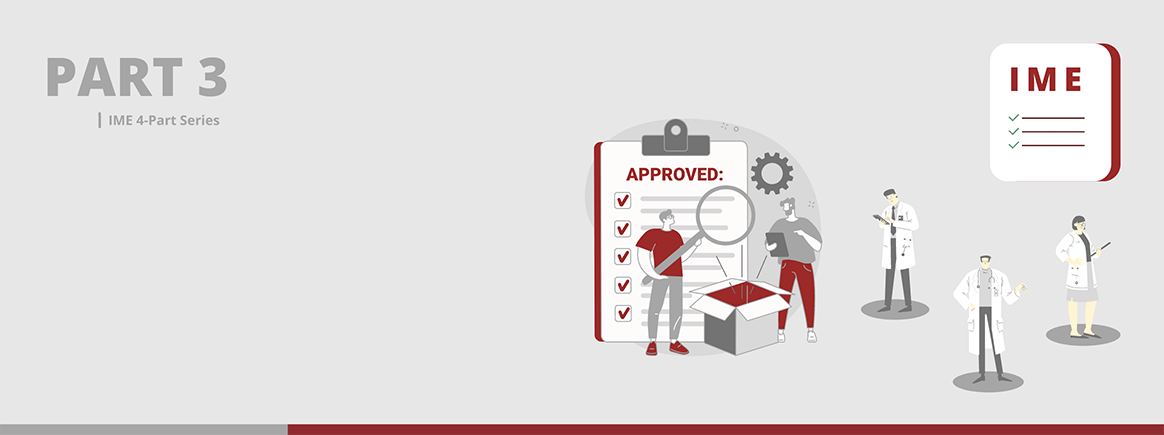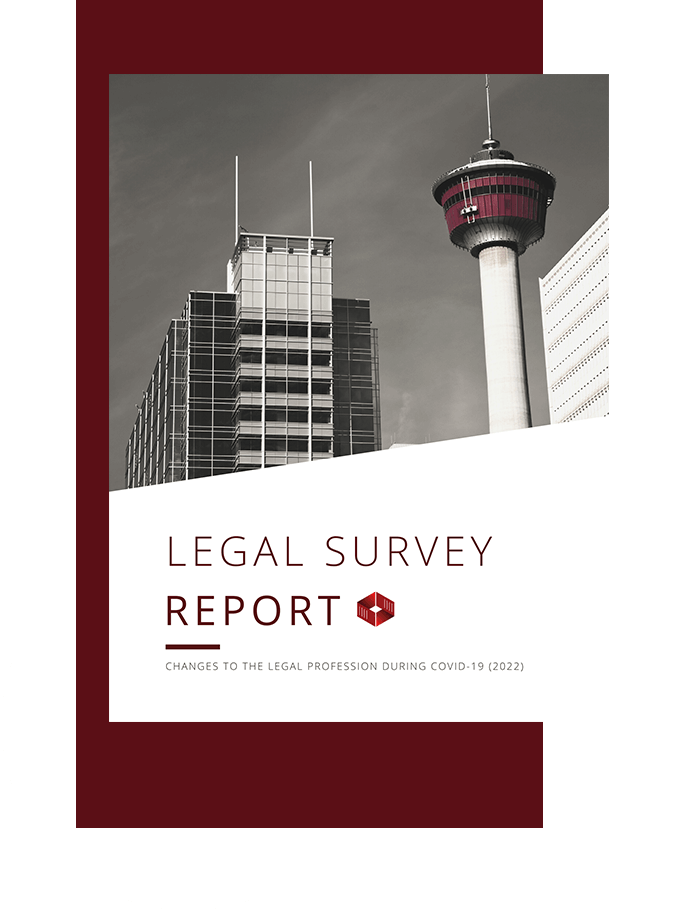
3 Tips For When Considering a New Expert
Introduction
In my article, 3 Steps to a Smooth IME, I touched on the benefits of using a doctor new to IME reporting. This week we expand on this by going through three of the best practices to employ when considering an expert you have never used before (whether or not they are new to reporting). This is often a difficult step to take for a lawyer because every file is important, and it means potentially taking a chance on one of them. However, if you do not open yourself up to new experts, you risk eventually having a depleted roster, using an expert with a bad judgment on their record, or simply missing out on someone providing excellent, defensible reporting for others.
The first two of these tips necessitate going through an IME referral clinic. While this tends to increase the cost, it also brings the benefit of having a company take a chance on a new assessor before your firm does. Remember, a new doctor on an IME referral clinic's roster is often one of the best in their field, otherwise the clinic would not have invested time and money bringing them on board and up-to-date with your province's civil code on reporting. This is not guaranteed to be the case, though. Read on to find out how to make an informed decision.
Tip #1
Ask for Sample Reports on Both Sides of a Case
One of the most common mistakes I've seen in my years working in the IME industry was an unwillingness to use a doctor if they ever provided an opinion on the opposing side of a case to the one a lawyer represents. Or, at least, not considering a doctor's work on an opposing side if assessing them for your file. Relying too much on experts who are only retained by one side tends to run the risk of eventually receiving a report that is given no weight due to bias or due to unreasonable conclusions that could be based on referral bias*. It is preferable to use an expert who has shown minimal referral bias in their reporting. When considering an assessor new to you, always ask the referral clinic for two sample reports, one written on a file where the doctor was retained by the plaintiff side, and one where they were retained by the defense side. You want to see reporting methodologies that are similar on both reports, and that their opinions on both sides are clearly evidence-based rather than skewed by referral bias.
It should be noted that it isn't always the doctor's fault that they are retained more on one side than the other. Sometimes it has to do with their specialty rather than a bias (physiatry being more often used on the plaintiff side and orthopaedic surgery more often on the defence, for example). However, if the IME referral clinic cannot provide you with a sample report from each side (and the doctor isn't brand new to IME reporting), this should tell you something about their defensibility. The court tends to favour a balanced, evidence-based opinion, especially when one appears only on one side of a case.
Tip #2
Ask for a CV and a Bio/Writeup
A referral clinic will always be able to give you a CV for any doctor listed on their roster, but you should also ask your contact for a short bio or write-up. If they have one, it means they probably have confidence in this doctor's ability to provide quality reporting. You want to see a bio that outlines clinical work in their field of expertise, as well as their depth of experience in related areas. For example, AssessMed's bio for Dr. Gihan Perera (one of the best experts in the industry) will detail his work in physiatry and chronic pain, as well as his rotations in Psychiatry during his residency. Extrapolating from this example, because physiatry often crosses into the mental health consequences of chronic pain, having an assessor who understands this while opining within his area of expertise can be a massive advantage at trial. A doctor's bio or writeup can help you make these connections to better determine an assessor's ability to provide a defensible and comprehensive report.
Tip #3
Look the Expert Up in CanLII
Serious red flags can be uncovered by spending fewer than ten minutes searching CanLII for judgments referencing the expert you are considering. Most legal professionals will already do this every time, but I have nevertheless encountered examples of the consequences of missing this step. Even if you are in a bind and need a short notice opinion, you should never forgo using CanLII to discover how courts have treated the expert's evidence in the past.
By employing all three of these tips, you should be able to avoid booking a doctor who provides sub-par reporting, while increasing your roster of excellent options with defensible results.
Visit our features page for more information, and feel free to contact us at info@tracument.com to schedule a demo.
You may also like
Happy Holidays Message from David Swadden, CEO
December 18, 2025
We would like to wish all our clients and readers a wonderful holiday season filled with joy and laughter.
Tracument Holiday Schedule
December 11, 2025
We would like to update all our clients of our Holiday Schedule this holiday season!
Tracument Wrapped!
December 4, 2025
What 2025 Looked like for Tracument and for you!




